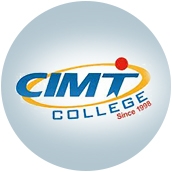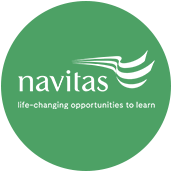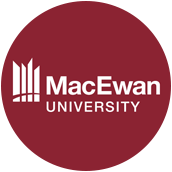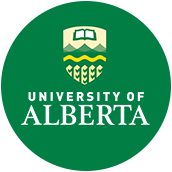A comprehensive guide to
 Study in Canada
Study in Canada
Learn everything about universities, costs, scholarships, admission process & more.
Canada facilitates academic, professional and personal development for students with a constantly upgraded education system in a multicultural environment.
300 +
Academic Institutions
11000 +
Programs
Why study in Canada?
A popular study abroad destination nurturing the dreams of millions of students.
Student Visa Guide

International students from across the globe are using Canada as a great platform for getting quality education.
Average Living Cost

Canada is a first preference for international students because it offers many educational opportunities
Part-time Jobs Guide

Students from different parts of the globe recognize Canada as a leading college nation resting
Popular Job Sectors

Canada offers many well-paying job opportunities across various fields such as technology
PGWP Canada

Through PGWP Program Canada, you may obtain real-work experience in Canada after you complete your studies.
Scholarships

For international students planning to study in Canada as well for Canadian scholars who
Study levels and disciplines
Types Of Courses in Canada

Undergraduate Programs
Certificates & Diplomas (1-2 years)
Associate Degrees (2 years)
Bachelor’s Degrees (3-4 years)
Bachelor’s Honors Degrees (4 years)

Postgraduate Programs
Graduate Diplomas (1-2 years)
Master’s Degrees (1-2 years)
Enquire Now
Not sure what you are looking for? Fill in the details to get a call-back.
Explore universities & colleges
Top Universities In Canada For Indian Students.

Canadore College - Stanford Mississauga Campus
Ontario, Canada • 14 Programmes
Tuition Fee : CAD 14500 - 15000 / year

Cambrian at Hanson - North York Campus
Ontario, Canada • 9 Programmes
Tuition Fee : CAD 17500 - 18000 / year

Canadian Institute of Management and Technology (CIMT) - Scarborough Campus
Ontario, Canada • 7 Programmes
Tuition Fee : CAD 11000 - 14000 / year


Georgian College - Orangeville Campus
Ontario, Canada • 7 Programmes
Tuition Fee : CAD 14000 - 14500 / year
Not sure what you qualify for?
Search for options that you are eligible for from 10s of Thousands of programs.
A-Z About admissions
A-Z of admissions, covered Pre to Post
Book a free counselling Session?
Answer a few question and receive handpicked college recommendation best for you
Study Abroud Exam
Popular English Language Proficiency Exams
Blogs and Articles
Study in Canada Blogs & Articles
Updated on • May 24,2024 04:49 PM IST • Study in Canada
Top Universities For Computer Science Courses in Canada
Updated on • May 27,2024 05:33 PM IST • Study in Canada
Increase Your PGWP Duration with 2 Years of Study in Canada
Updated on • May 22,2024 10:58 AM IST • Study in Canada
Canada Increases Off-Campus Working Hours for International Students
Updated on • May 22,2024 05:48 PM IST • Study in Canada
Student Education Loan to Study in Canada - Eligibility, Documents Required, How to Apply
Updated on • May 18,2024 03:27 PM IST • Education Loans
Teaching Courses in Canada for Indian Students
Updated on • May 17,2024 11:26 AM IST • Study in Canada
Universities in Canada for International Students
Updated on • May 14,2024 11:49 AM IST • Study in Canada
Colleges in Canada for International Students
Updated on • May 09,2024 05:17 PM IST • Colleges in Canada
Finance Courses & Universities in Canada
Updated on • May 02,2024 05:16 PM IST • Courses in Canada
Guide to Student Housing in Nova Scotia
Updated on • Mar 29,2024 10:49 AM IST • Study in Canada
Updated on • Mar 29,2024 11:47 AM IST • Study in Canada
Masters in Geology in Canada: Colleges, Courses, and Fees
Updated on • Mar 28,2024 11:32 AM IST • Study in Canada
Project Management Courses in Canada: Eligibility, Cost, Universities and more
Updated on • Mar 19,2024 03:09 PM IST • Courses in Canada
Study Loan for Canada : A Complete Guide
Updated on • Mar 18,2024 05:23 PM IST • Education Loans
Colleges in Edmonton Canada for International Students
Updated on • Mar 18,2024 04:10 PM IST • Colleges in Canada
Data Science Courses in Canada: Universities, Fees, Requirements, Scholarships, Salary and More
Updated on • Mar 02,2024 04:20 PM IST • Study in Canada
Updated on • Mar 01,2024 03:19 PM IST • Study in Canada
Master's in Management (MIM) in Canada: Universities, Eligibility, Cost, Process and more
Updated on • Mar 01,2024 12:56 PM IST • Study in Canada
MS in Sports Management in Canada: Courses, Fees and Entry Requirements
Updated on • Feb 29,2024 04:17 PM IST • Study in Canada
Master's Scholarships in Canada: Types, Top Universities, Eligibility and Process
Updated on • Feb 28,2024 11:35 AM IST • Study in Canada
Cost of living in Canada
Living Expenses in Canada
Students planning to study in Canada must save money for their basic daily necessities and unexpected costs. Apart from education-related expenses, international students must also plan for expenses like accommodation, food, phone bills, internet, transport, health insurance and more. Based on these factors, it costs approximately between CAD 2,000 and CAD 2,500 for them to live in any city across the country. The table below offers an estimate of the monthly cost of living in Canada for International students.
| Expenses | Average Monthly Cost (Approx. CAD) | Average Monthly Cost (Approx. INR) |
|---|---|---|
| Accommodation (shared apartments) | 400 - 900 | 24,500 - 37,000 |
| Travel | 100 - 120 | 6,100 - 7,500 |
| Food | 300 - 400 | 18,000 - 24,500 |
| Entertainment | 150 - 200 | 9,000 - 12,300 |
| Health Insurance | 70 - 80 | 4,200 - 5,000 |
| Internet | 80 - 90 | 4,800 - 5,600 |
| Utilities (Electricity, cooling, water, heating, garbage) | 160- 165 | 9,800 - 10,200 |
Lets get your queries resolved! Session?
Got a question? Ask and discuss with 100,000+ study abroad aspirants and experts
FAQ's
FAQ's Study In Canada
How much does it cost to study in Canada?
Canada is an affordable country to study as compared to many others. You will likely need between CAD20,000 and CAD30,000 per year to cover tuition. The range is a guideline only, and the exact number will depend on your school and program. The cost of housing, food, and other living expenses will vary based on your location and personal needs.

















